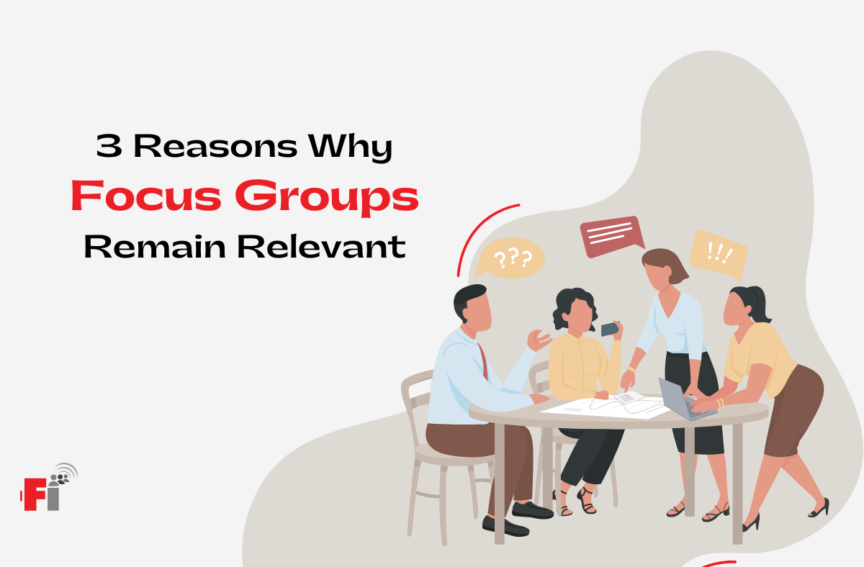Focus groups are a reliable market research methodology and are widely and frequently used to inform corporate strategy, advertising campaigns, and product design. Even with the proliferation of technology we have at the ready, along with copious amounts of data, some may find it surprising that market researchers still use the low-tech method of focus groups.
The reason focus groups remain popular is because we have so much technology. Here are three reasons why:
Reason #1: Choices, choices, choices
Today’s consumers are bombarded with choices in what they purchase, how they buy it, and how
they ultimately use products and services. Many companies invest a lot in technology, product,
or service assuming the customer will use it as intended, but it rarely happens this way.
Without insights into why and how your customers choose to purchase your product and use it, you’re
selling blindly and giving your competition an advantage. Not knowing the real world uses and
habits of your customer regarding your messaging, product placement, and design can flip a
consumer to a competitor.
Understanding consumers’ behaviors and the “how” and “why” behind their purchasing
decisions and actual usage of a product or service is where focus groups shine.
Don’t assume that a survey will give you answers to your questions; they are good for quick
snapshots, but not deeper insights.
Reason #2: Data can be noisy
Data can show patterns, page visits, clicks, page views, and more. You can broadly learn about geographic and demographic differences and end decisions, but data won’t illuminate why or how people arrived there.
Interpreting data is best done through qualitative research. Market researchers can probe to learn what caused someone to fill a shopping basket and complete a transaction, or learn what they wanted to do, but weren’t able to because of technical glitches, or because a website wasn’t user friendly.
Data provides the outline; qualitative research provides the color. The marriage between the two improves how websites, products, and apps are designed, created, and marketed.
Reason #3: Brand loyalty
If you’re still not convinced by the effectiveness of focus groups, a third reason we can give is
simple: brand loyalty. Consumers don’t like surprises (bad surprises, that is) and like to choose a brand that will offer consistent value.
Understanding what your consumer values through group conversations is far more effective than a written survey response. There is an advantage over in-depth interviews as well – conversations in groups naturally morph into a fluid discovery of the subject.
Despite technological advancements, focus groups will always remain relevant in market research because of the undeniable value behind the insights they uncover. In a competitive market, staying relevant and top-of-mind to consumers is critical.
Without directly consulting with your target audience, your next moves will be a partial guessing game.
We recently had a conversation with a client regarding their study and their feedback confirms the value of conducting qualitative market research.
“We had really great conversations and were able to talk to the people we have been searching for for a while.” They shared. “The insights we gathered, the value is immeasurable.”
Need respondents recruited for your market research project? Let’s talk!
Updated on July 13, 2023: We are committed to providing our readers with the latest information and updating our previous articles as needed. We hope that you find this updated information informative and useful. Edited by Elizabeth Zuponcic


